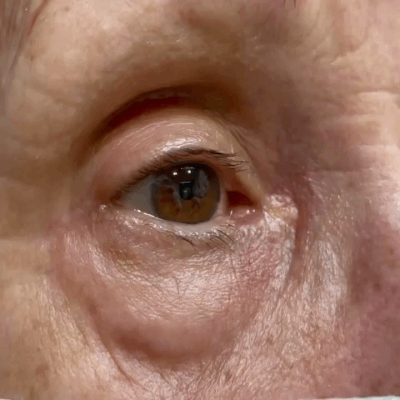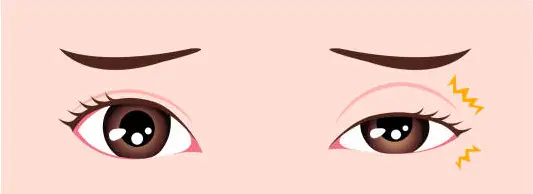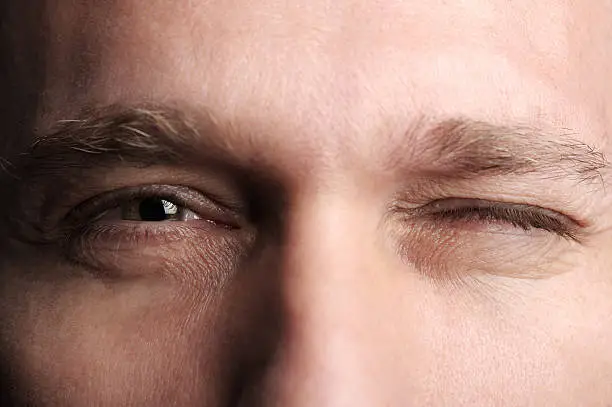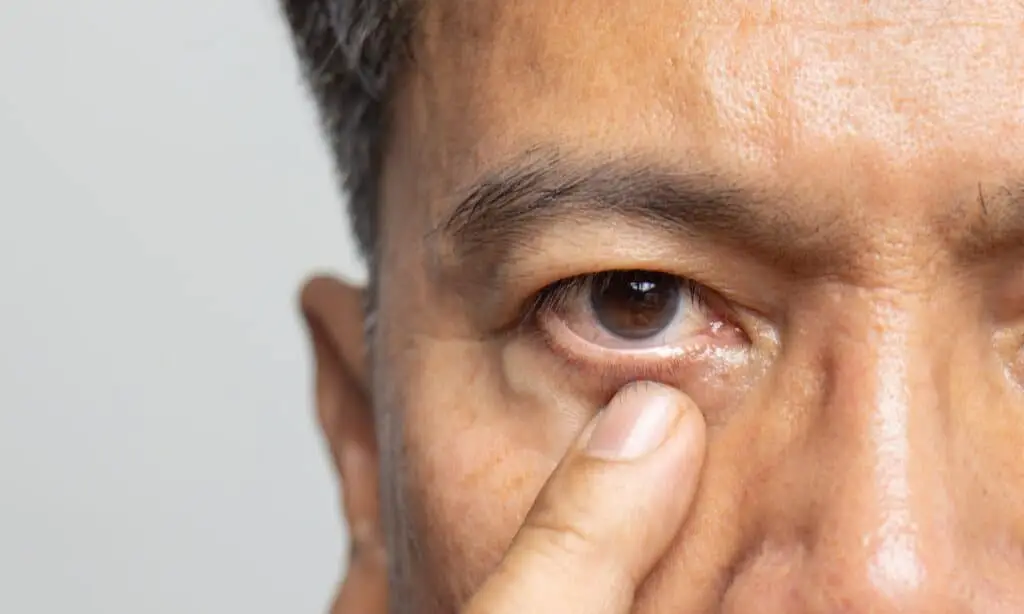Ever noticed your eyelid doing this? That annoying little flutter is known as an eyelid twitch, or myokymia, and it’s something many of us experience from time to time.
But why does it happen, and when should you be concerned? In this blog, we’ll dive into the common causes of eye twitching, explore simple remedies to ease the twitch, and discuss when it might be a sign of something more serious. So, let’s dive in and explore!
Contents
Understanding Eye Twitching

Eye twitching, medically known as myokymia, is a common condition characterized by involuntary, sporadic spasms or contractions of the eyelid muscles. These twitches are usually harmless and typically affect the lower or upper eyelid of one eye. While the exact cause of eye twitching can vary, it’s generally not considered a serious medical issue.
Characteristics of Eye Twitching:
- Sudden/ Frequent Twitching: The twitching is often intermittent, occurring every few seconds or minutes.
- Unilateral: It usually affects one eyelid at a time, either the upper or lower lid.
- Brief Duration: Each twitch is very brief, lasting only a few seconds.
- Self-limiting: Twitching episodes can last from a few minutes to a few days but usually resolve on their own without any treatment.
For most people, eye twitching is a temporary inconvenience rather than a serious medical problem, and recognizing the triggers can help in preventing or reducing the frequency of twitching episodes.
Types of Eyelid Twitches
Here’s a detailed table to help understand the different types of eyelid twitches, highlighting which parts are affected and what the twitching looks like for each type:
| Type of Twitch | Affected Parts | What Does the Twitching Look Like? |
|---|---|---|
| Fasciculations | Individual muscle fibers in the eyelid | Small, fine, and rapid twitches that are subtle and often only noticeable to the person experiencing it. |
| Myokymia | One part of the eyelid, typically the lower | Continuous, fine, worm-like movements under the skin that can be seen by others. |
| Blepharospasm | Both eyelids | Forceful, involuntary blinking or squeezing of the eyelids; can be severe enough to impair vision. |
| Hemifacial Spasm | One side of the face, including the eyelid | Irregular, involuntary twitching that can affect the entire half of the face, sometimes causing the eyelid to close completely. |
Common Causes of Eyelid Twitching

Here’s a list of common triggers that can lead to eyelid twitching:
- Stress
- Fatigue
- Caffeine overconsumption
- Alcohol intake
- Smoking
- Eye strain
- Poor nutrition
- Dry eyes
- Allergies
- Medication side effects
Home Remedies to Relieve Eye Twitching

Here are some effective home remedies to help alleviate eye twitching:
- Apply a warm compress to your eyes.
- Practice regular eye relaxation exercises.
- Ensure adequate sleep each night.
- Limit caffeine and alcohol consumption.
- Stay hydrated by drinking plenty of water.
- Adjust lighting to reduce eye strain.
- Take breaks regularly when using digital devices.
- Use lubricating eye drops if experiencing dry eyes.
Medical Treatments To Stop Eyelid Twitch
Here are some common medical treatments that doctors might recommend for managing chronic eye twitching:
- Prescription Medications: These include anticonvulsants, muscle relaxants, or certain types of anti-anxiety drugs.
- Botox Injections: Botox temporarily paralyzes the muscles causing the twitching, providing relief for several months at a time.
Consultation with an eye care professional or neurologist is essential to determine the appropriate treatment based on the severity and underlying cause of the eye twitching.
Conclusion
Vision is one of our most critical senses. Yet, seemingly minor issues like eye twitching can sometimes signal more serious health concerns that, if left unchecked, could lead to significant complications. Therefore addressing these issues promptly is crucial.
Many people don’t have easy access to eye care, which is where the Eye Mantra Foundation steps in. We provide free eye check-ups, surgeries, and medicines to those who need them most.
Your support can change lives by preventing vision problems from turning into severe complications. A small donation from you can make a big difference.
Together, we can ensure that everyone has access to the care they need to keep their vision clear and their eyes healthy.
FAQs
What Deficiency Causes Eyelid Twitching?
Deficiencies in certain nutrients, particularly magnesium, can contribute to eyelid twitching. Ensuring a balanced diet with adequate levels of essential vitamins and minerals can help prevent or reduce the frequency of twitching.
Can Dehydration Cause Eye Twitching?
Yes, dehydration can lead to eye twitching. Lack of adequate hydration can cause an imbalance in electrolytes, which is necessary for proper nerve and muscle function, leading to spasms like eyelid twitching.
When Should I Be Worried About Eye Twitching?
You should seek medical attention if eye twitching persists for more than a week, is accompanied by other symptoms such as eyelid drooping, redness, swelling, or discharge, affects other parts of your face, or causes your eyelid to completely close.
What is the Myth About Right Eye Twitching?
Culturally, some believe that right eye twitching can signify good fortune or a forthcoming positive event in some cultures, particularly in Indian and some African cultures. However, there is no scientific evidence to support this belief.
Is it Good Luck if Your Left Eye Twitches?
Similarly, left-eye twitching is sometimes interpreted as a sign of bad luck or impending challenges in some cultures. Like right eye twitching, this is purely a cultural belief and has no basis in medical science.

